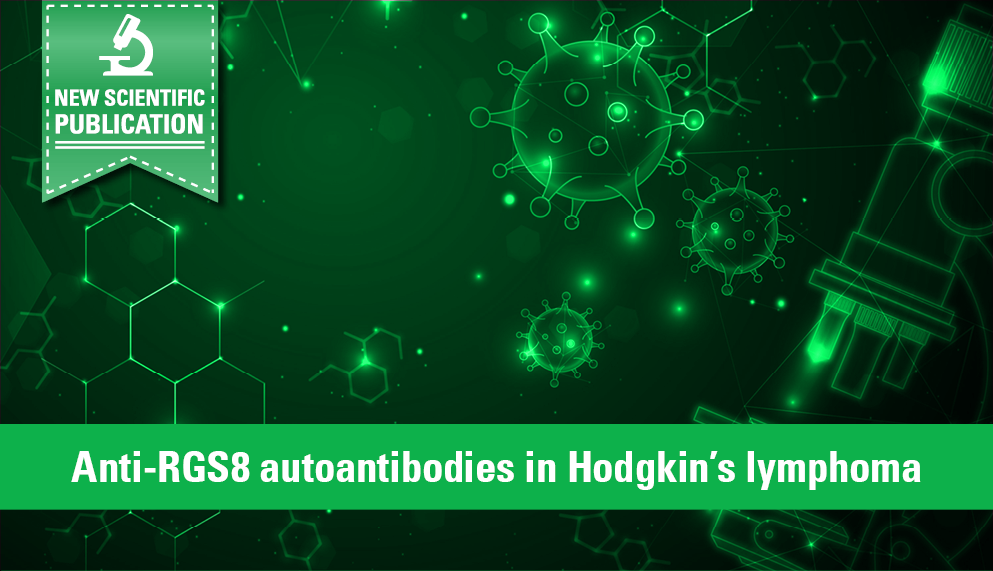Autoantibodies targeting the protein RGS8 (regulator of G-protein signaling 8) are associated with a particular subtype of Hodgkin’s lymphoma, as described in a recently published study performed in a collaboration between EUROIMMUN and research institutes in France, Spain and USA. The novel autoantibodies are suggested to be of at least intermediate risk for paraneoplastic neurological syndrome, with respect to the recently updated risk classes for onconeural autoantibodies.
Anti-RGS8 autoantibodies were first identified in 2021 by scientists at EUROIMMUN in two patients with cerebellar syndrome associated with lymphoma. The new study aimed to further characterise the clinical features associated with these autoantibodies. Anti-RGS8 autoantibodies were detected in serum and cerebrospinal fluid using a two-step procedure of indirect immunofluorescence assay on tissue sections followed by specific confirmation of positive results using a cell-based assay. In addition, the autoantibodies were detected specifically using a line blot developed by EUROIMMUN.
Substantial biological collections from patients with paraneoplastic neurological syndrome or autoimmune encephalitis were investigated for anti-RGS8 autoantibodies. Only three samples exhibiting anti-RGS8 autoantibodies in serum and/or CSF were identified, suggesting that the autoantibodies are a rare occurrence. The three patients presented with cerebellar ataxia, and two of them had Hodgkin lymphoma of the rare subtype called nodular lymphocyte-predominant Hodgkin lymphoma. The results are in line with findings from previous cases who also presented with B-cell lymphoma. Patients with anti-RGS8 autoantibodies had a severe disease course and tended to respond poorly to immunotherapy. The syndrome was found mostly in middle-aged males.
RGS8 is presumed to be involved in the regulation of neuronal excitability. The protein is expressed physiologically in Purkinje cells, but also specifically in lymphoma cells of patients with anti-RGS8-associated ataxia. The strong expression of RGS8 in the tumour cells is presumed to be the trigger of the immune cross-reaction that leads to the death of Purkinje cells. These results together with those of previously described cases suggest that anti-RGS8 autoantibodies define a new type of paraneoplastic neurological syndrome. The study was published in August 2024 in the Journal of Neurology.
Read more on the new study in the Journal of Neurology
Read about the identification of anti-RGS8 autoantibodies
Learn more about our research at www.neuro-company.com
